Seeds of Change: Belize’s 2024 Agricultural Gains, Challenges, and the Road Ahead
As we wrap up 2024, News 5 is excited to bring you our digital Year in Review! This year, we're diving into the highlights and challenges of the past twelve months, all organised by themes. Join us as we look back at the stories that shaped our year…
2024 has been a pivotal year for food security and agriculture in Belize. With significant initiatives and challenges, the country has made strides in ensuring a resilient and sustainable agricultural sector.
Belize’s Sugar Industry in 2024
The year 2024 has been a tumultuous yet transformative period for Belize’s sugar industry. From record-breaking cane payments to persistent challenges such as labour shortages and illicit trade, the industry has navigated a complex landscape.
One of the most notable achievements in 2024 was the record final cane payment to farmers. For the second consecutive year, Belize Sugar Industries Limited (BSI) announced a historic final payment of BZ$90.95 per tonne of cane for the 2024 crop. This price is attributed to strategic investments, new market explorations, particularly in CARICOM, and improved global market prices for sugar. Despite these successes, the industry faced significant challenges, including labour shortages and crop diseases.
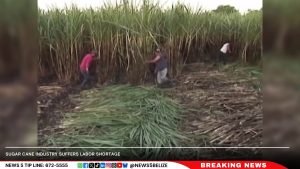
The sugar industry in Belize has been grappling with severe labour shortages. This issue has prompted BSI to explore automation as a solution to maintain productivity. The company has been advancing towards automating parts of its assembly line to mitigate the impact of labour shortages. This shift towards automation is seen as a necessary step to ensure the industry’s sustainability and competitiveness in the global market.
Despite an 18% increase in the domestic supply of brown sugar and an 8% increase in white sugar from January to April 2024 compared to the same period last year, Belize continues to face a local sugar shortage. The primary factor contributing to this shortage is the illicit cross-border trade of sugar. The significant price difference between sugar in Belize and neighbouring countries like Guatemala and Mexico has created a lucrative incentive for mugglers. Efforts to curb this illegal trade have included calls for the government to review and increase the price of domestic sugar to reduce the price disparity.

The Belize Sugar Cane Farmers Association (BSCFA) has been at the forefront of addressing various issues within the industry. In a document titled “BSCFA Addresses Delivery of Cane by Other Farmers,” the association highlighted the challenges faced by its members, including the delivery of cane by non-members and the need for a fair commercial agreement with BSI. The BSCFA has also been vocal about the need for greater
The relationship between the government and the sugar industry has been complex. Prime Minister John Briceño faced criticism from the BSCFA for allegedly failing to fulfil promises made to cane farmers. The association accused the prime minister of lying to farmers and not taking adequate steps to address their concerns. Despite these tensions, the government has played a crucial role in mediating disputes and facilitating negotiations between BSI and the BSCFA.
In response to ongoing disputes and calls for greater transparency, the government established a Commission of Inquiry into the sugar industry. The commission’s mandate is to analyse the entire value chain of the sugar industry and provide recommendations for its modernization. The hearings, which began in August, have included testimonies from various stakeholders, including BSI, BSCFA, and other cane farmers’ associations.
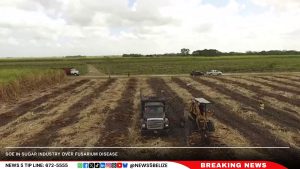
Last month, the Ministry of Agriculture declared a state of emergency in Belize’s sugar industry due to a fungal disease that has infected up to 40,000 acres of sugarcane. This disease, which causes the cane to yellow and wilt, renders it unsuitable for sugar production, posing a significant threat just a week before the new crop season begins. William Neal, Communications Director for Belize Sugar Industries (BSI), explained that the fungus, potentially linked to climate change-driven factors like extended droughts and excessive rains, has created ideal conditions for its growth. Corozal has been more severely affected than Orange Walk, and while the specific species of the fungus is still unidentified, early research and best practices are being tested to combat it. However, with production potentially dropping by as much as 30%, Neal emphasized the urgent need for industry-wide efforts to mitigate the impact of this serious challenge.
Recovering from Disaster: The Revival of Cacao Farming in Toledo
The year began with a massive recovery effort for cacao farmers in Toledo, who suffered catastrophic losses due to forest fires that ravaged over 10,000 hectares of farmland in 2023. The National Emergency Management Organisation (NEMO) and the Caribbean Disaster Emergency Management Agency (CDEMA) stepped in, providing essential equipment and resources for replanting cacao. Supported by Global Affairs Canada, the initiative aimed to restore a key agricultural sector while prioritising climate resilience.
Jason Francis, Project Coordinator at CDEMA, emphasised the importance of climate-resilient practices, stating, “This project is about more than recovery; it’s about preparing for future challenges.” With cacao poised to generate $2 million for Toledo in the coming year, the assistance provided a lifeline to farmers like Jose Coy of Maya Mountain Cacao Farms, who vowed to secure better market prices for the region’s produce. However, ongoing challenges such as land rental fees and fluctuating international prices underscored the need for sustained support and policy interventions.
The Carrot Conundrum: Oversupply, Contraband, and Market Disruptions
Carrot farmers in northern Belize faced a perfect storm of challenges in 2024. A glut in local production, coupled with allegations of contraband imports from Mexico, left dozens of acres of carrots unsold and farmers grappling with financial losses. Farmers like Sabino Yam from Patchakan Village expressed frustration, noting that buyers were reluctant to purchase local produce despite official denials of import permits.
The Ministry of Agriculture acknowledged oversupply as a key factor, tracing the problem to last year’s climate disruptions. Uncoordinated planting schedules exacerbated the issue, with many farmers planting simultaneously in response to delayed rains. Andrew Mejia, Acting Director of the Ministry’s Extension Unit, stressed the need for improved coordination among farmers, stating, “Better planning and adherence to schedules are critical to avoid these cycles of oversupply.”
While the Ministry pledged to reactivate contraband interdiction teams and enhance market access, farmers like Oscar Martinez from La Gracia Village warned that continued inaction on contraband would deter future cultivation.
Citrus and Banana Industries: A Fragile Recovery
Belize’s citrus and banana sectors continued their slow recovery from years of decline. Citrus farmers faced challenges from persistent diseases such as Huanglongbing (HLB), while banana growers struggled with the twin burdens of high fertiliser costs and Sigatoka disease. Minister of Agriculture Jose Abelardo Mai pointed to promising developments, including trials of disease-resistant citrus varieties and a government-appointed task force to chart a sustainable path forward.
The banana industry, though less severely affected, faced setbacks from excessive rainfall, which reduced export-quality produce. Fertiliser subsidies and small loan facilities provided some relief, but stakeholders cautioned that more substantial investments would be needed to stabilise these key export crops.
Cattle Exports and the Screwworm Threat
Belize’s cattle industry, valued at over $100 million, saw significant developments in 2024. A transition in inspection protocols for cattle exports to Mexico marked a milestone, with Belizean veterinarians taking the lead under the oversight of the International Regional Organisation for Plant and Animal Health (OIRSA). Minister Mai confirmed that the new system worked seamlessly, ensuring continued access to lucrative export markets.
However, the resurgence of the New World Screwworm in Central America cast a shadow over the industry. Countries like Panama and Costa Rica reported hundreds of cases, raising concerns about the pest reaching Belize. Strict surveillance measures were implemented at border points, and sterile fly dispersals were intensified to prevent an outbreak. Zoe Robinson-Zetina, Managing Director of BAHA, noted that preparedness efforts included training field officers and draughting emergency quarantine protocols.
Despite these efforts, experts like OIRSA’s Fermin Blanco warned that the spread of screwworm was likely inevitable, urging collective action across the region to contain the pest. The situation underscored the importance of vigilance and regional collaboration in protecting Belize’s agricultural assets.
Flour Shortages and Rising Bread Prices
A temporary flour shortage disrupted the operations of bakeries across Belize, highlighting the vulnerability of supply chains. While substitute flours helped mitigate the impact, many businesses reduced production, prioritising essential items like buns over less critical products. The crisis was compounded by a 20% increase in the price of regulated 16-ounce loaves, sparking concerns about affordability for low-income households.
Creole bread vendors emerged as a cost-effective alternative, with many Belizeans turning to these local producers for more affordable options. Government regulators defended the price hike as necessary to sustain the baking industry, but consumers called for parallel measures to increase wages and ease the cost of living.
Building Climate Resilience
The impact of climate change loomed large over Belize’s agriculture sector in 2024. Erratic weather patterns disrupted planting and harvesting cycles, leading to oversupply in some crops and shortfalls in others. The delayed rainy season and increased instances of flooding underscored the urgency of adopting climate-smart agricultural practices.
Programs aimed at building resilience, such as staggered planting schedules and crop diversification, gained traction. However, the year also highlighted the need for greater investment in research and infrastructure to support farmers in adapting to changing climatic conditions.
One of the major initiatives launched this year was the Resilient Rural Belize (RRB) program, a BZ$50 million project aimed at strengthening small agricultural producer organisations against climate change and economic disruptions. This program focuses on climate-resilient farming practices, enhancing farm infrastructure, and improving market access for small farmers. Notable projects include upgrading farm roads and constructing water facilities and storage sheds, particularly benefiting communities like Trio Village.
Belize’s Minister of Agriculture and Food Security, José Abelardo Mai, played a crucial role in regional and international forums. At the COP29 summit in Baku, Azerbaijan, Minister Mai emphasised the importance of sustainable livestock production in mitigating climate change and ensuring food security. Additionally, Belize secured continued cattle exports to Mexico, reinforcing its agricultural trade relations.
Economic Growth and Agricultural Output
Belize’s economy saw a notable growth of 6.6% in the third quarter of 2024, with the primary sector, including agriculture, contributing significantly. Key crops such as bananas, citrus, and sugarcane showed improvements, and the fishing industry experienced a remarkable 25.5% increase in production.
The agricultural sector faced several challenges, including the impact of Tropical Storm Sara and pest outbreaks. The government classified agricultural pest outbreaks as a national disaster and took measures to address these issues. Efforts to combat the New World Screwworm threat were also intensified, with regional cooperation playing a key role.





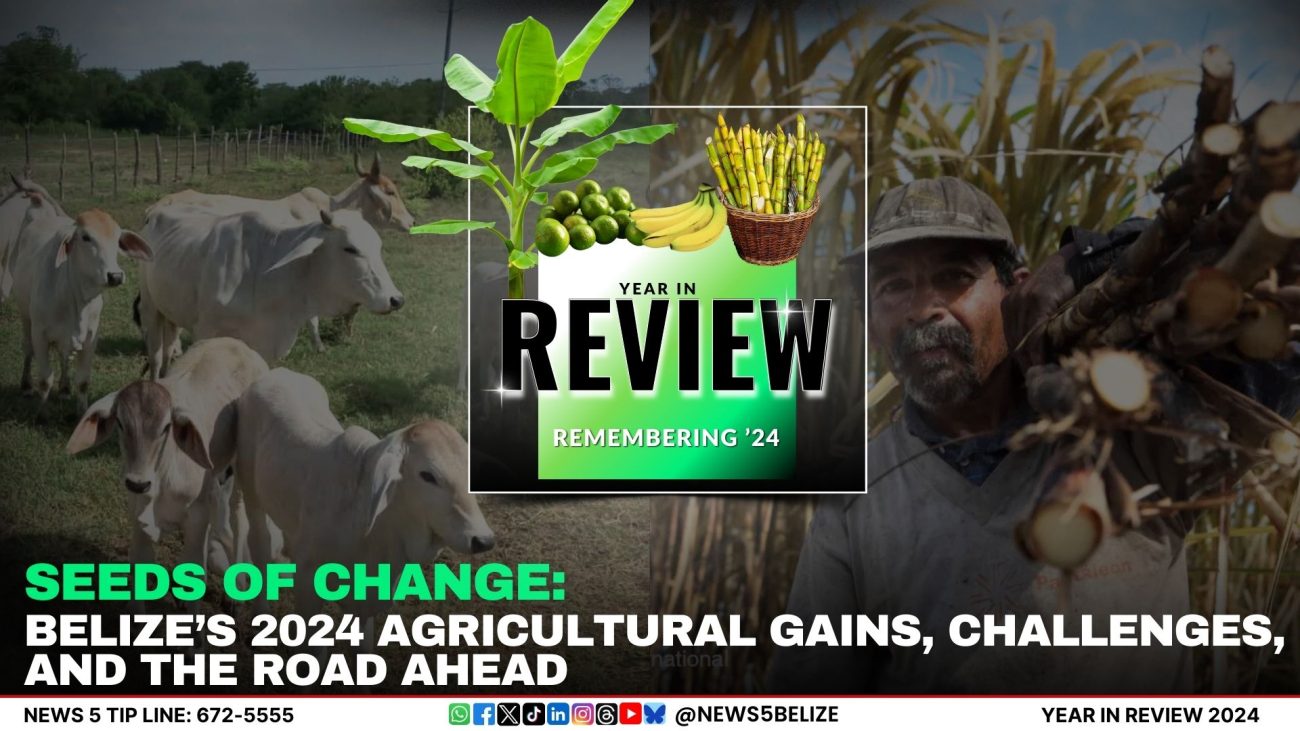

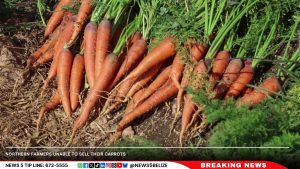
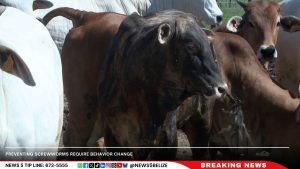
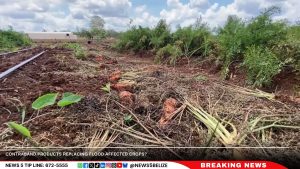
Facebook Comments